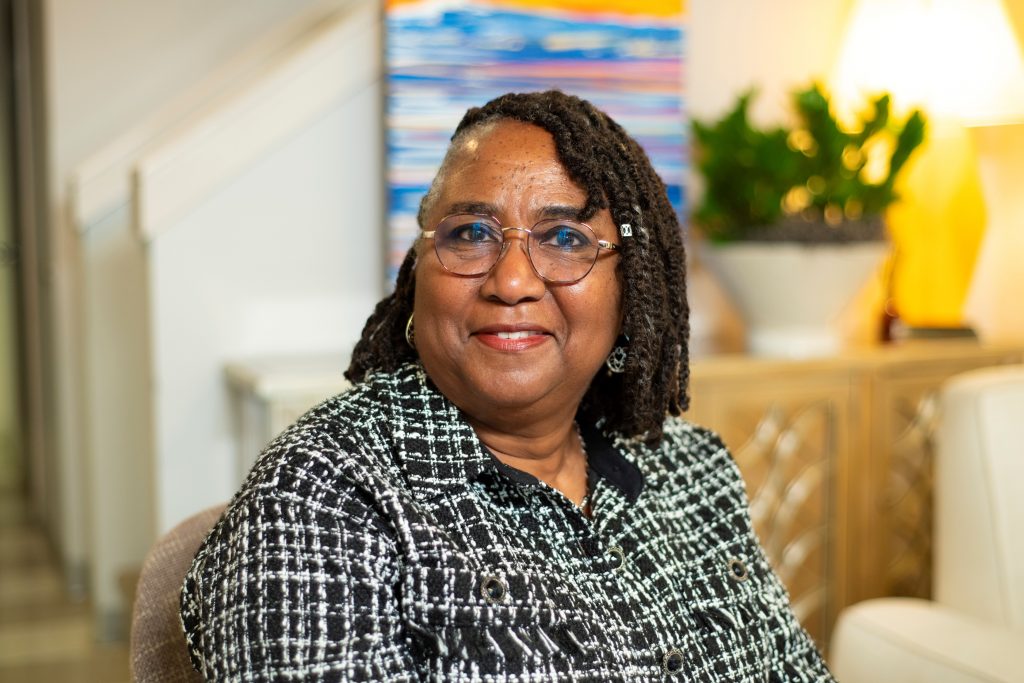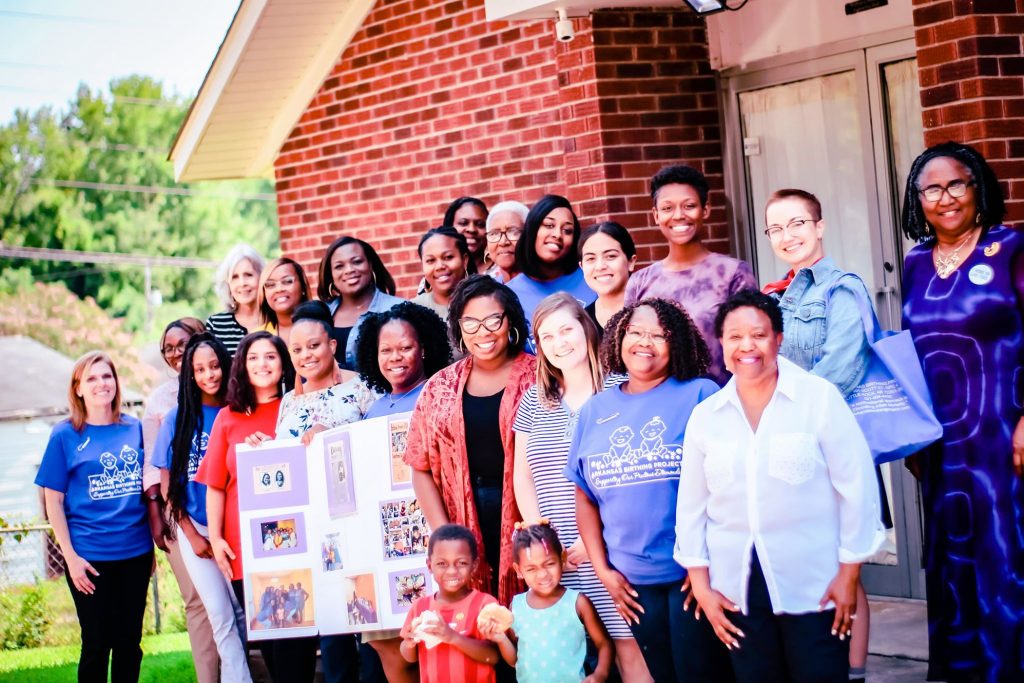By Kim Dishongh
When a woman is pregnant, there is often no information she values more than the kind that comes from her mother, grandmother, sister and aunts. Those female mentors are not always readily available, however, so the Arkansas Birthing Project works to fill in the gaps.

“We work to establish fictive kinship relationships,” said Zenobia Harris, executive director of the Arkansas Birthing Project. “Our founder calls it ‘sister-friending.’ Some people already have good family support, and they just want extra support, and some people don’t have much support at all.” Sister-friends, women who volunteer to serve as mentors to pregnant women, step in and serve as social support to help improve the chances that moms and their babies will be healthy.
“By being a part of this ‘family,’ you have a lot of people who are looking out for you and who are willing to make sure that you’re going to be okay during this process and afterwards,” Harris said.
Arkansas Birthing Project was founded in 1988 by Katherine Hall-Trujillo. Trujillo, born in Moscow, near Pine Bluff, was a public health administrator for the state of California at the time, and she had ample experience working with women who lacked access to good healthcare during their pregnancies. The group made themselves available for informal conversations about pregnancy and motherhood, and they offered support, too, like rides to prenatal visits.

“She and nine of her friends bound together in what we call a ‘bunch,’ and they agreed to provide social support to a group of young women who were considered to be high risk,” Harris said of Trujillo. “What they found astounded them. The women gave birth to babies that were at term; they were at good birth weights, there were no ICU stays required of the babies when they were born; moms did better after birth with this extra support…”
The program was recreated within that California community and, eventually, beyond.
“The Birthing Project has been replicated in more than 70 communities across the United States and also in seven foreign countries, including Cuba,” said Harris. “In 1999, the Birthing Project came to Arkansas.”
Arkansas Birthing Project aims for little sisters — the pregnant women who participate in the organization’s program — to give birth to full-term babies, with birthweights of 5 pounds or more.
Sister-friends are volunteers from all walks of life, Harris said.
“We work with sororities, women’s church groups, community clubs — anywhere women gather and work in fellowship — to recruit our sister-friends,” Harris said. “They commit to one year. We make sure that our little sisters have a prenatal care provider, that they attend their appointments, and that they make provisions for themselves and their babies during this time to make sure they have a healthy outcome.”
Arkansas Birthing Project also provides assistance, on occasion, with car seats and cribs and other equipment necessary for the first year of a baby’s life. The organization can pass on donated baby clothing and can provide diapers and sometimes baby formula or breast pumps, as well.
“We certainly work on social supports, things that people need to have a healthy situation, like a place to live, food to eat, a safe sleep environment,” Harris said. “We also include encouraging young women to do some planning for their future. We call it dreaming, and many of the young women we work with don’t have dreams for their futures. Many of our young women are focused on subsistence living — surviving.”
The little sisters are asked to consider where they see themselves and their babies in a year — or in five years — and then encouraged to work on planning how to reach those goals.
Arkansas Birthing Project is funded through grants from organizations like Arkansas Community Foundation and from private donations.
“We have had some pretty lean years, and I’ve often done things out of my pocket because I believe in this,” said Harris. “I think it’s another important component, of all the things that are out there to help women. I think there are different things for different people, and the people that we tend to interact with and attract are people that I call ‘off the grid’ people- people that other people perhaps don’t value as much or feel like they can be as successful. We believe they can.”
